 myCSUSM
myCSUSMCertificate in Supervising Employees
Overview
The eight-week Certificate in Supervising Employees provides new or soon-to-be managers with a solid foundation in management. You will leave each session with higher levels of confidence backed by skills you can immediately apply when you return to work.
Program Details
- AUDIENCE
This program is designed for:
- New managers or supervisors
- Soon-to-be-promoted managers
- Experienced managers looking to improve their leadership skills
- SCHEDULE, REGISTRATION & FEES
Course Dates Registration Transition from Peer to Supervisor
Online: Feb. 27, 2024 Management Basics for New Supervisors
Online: March 5, 2024 Effective Communication Skills
Online: March 12, 2024 Cultural Competency for the Workplace
Online: March 19, 2024 Performance Management
Online: March 26, 2024 Performance Management Registration Coaching and Feedback
Online: April 2, 2024 Goal Setting and Time Management
Online: April 9, 2024 Managing Within the Law
Online: April 16, 2024 Spring 2024 Supervising Employees Certificate Program - Online
Online: Feb. 27 - April 16, 2024 Course Details
- Classes held online utilizing Zoom and an online resource center
- Classes are from 8:30 a.m. to 12:00 p.m.
- Entire program is approved for 2.8 CEUs
Fees
- Each course is $175
- $1,400 for entire series
- 10% team savings for three or more employees, email professionaldevelopment@csusm.edu for your team savings code
- View veteran and military funding options
Please note: All rates are subject to change without notice.
- Classes held online utilizing Zoom and an online resource center
- COURSE TOPICS
Transition from Peer to Supervisor
As a new supervisor, you will encounter many new challenges. You’ll quickly learn that your technical expertise is of little help to you in the midst of managing people problems and productivity issues. It’s not what you say that people pay attention to, it’s how you say it. You’ll face the scrutiny of co-workers who may be thinking, “Why was he/she promoted?” Establishing yourself as someone people will listen to, respect, collaborate with and follow is not an easy task. New knowledge and skills are required. This class examines the basic supervision skills, behaviors and attitudes you need to transition successfully from a peer to a supervisor.
Workplace Applications:
- Become a supervisor who has willing followers
- Recognize the differences between a contributor and a leader
- Learn the basics of defining and assigning work
- Start off on the right foot with your direct reports
- Effectively supervise former peers
- Establish productive relationship management
Management Basics for New Supervisors
In the last 20 years, the rapid rise of technology and globalization has created more change in the world of work, regardless of the industry, than all of history. Successful leaders must understand the impact of this change on the company and on employees as well. To become a successful supervisor, you will need to understand the big picture before you can begin dealing with the details of people and productivity issues. This class will help you understand your role as it relates to the overall organization and help you begin building the traits of an effective leader.
Workplace Applications:
- Define the leader of today
- Understand the evolution of business and its impact on your company today
- Learn what you need to know to be in business in five years
- Balance the three critical components of the supervisor’s job
- Understand the role of interdependence on business success
Managing Within the Law
Managers and supervisors make decisions every day that can have significant legal implications. This class will highlight some of the relevant laws and their application to the daily operations and functions of a manager, including preventive employment practices, harassment situations and health and safety guidelines.
Workplace Applications:
- Avoid workplace violence and misconduct
- Prevent harassment and discrimination
- Handle drug and alcohol abuse in the workplace
- Understand different legislations such as Title VII, ADA and FMLA
- Create an environment of mutual trust and communication
Performance Management
A key responsibility of a supervisor is to manage employee performance. This class will help you better understand what an effective performance management system is, its purpose, elements and processes, and what your role is in making that system effective. Discussions will focus on the steps needed to identify, encourage, improve and reward employee performance as well as the link between the performance management system and the other human resource systems, specifically, training and compensation.
Workplace Applications:
- Set clear goals and standards for performance
- Identify and measure tasks appropriately
- Document employee performance and identify development needs
- Deal more effectively with difficult performance appraisals
- Create an environment of clear expectations and results
Effective Communication Skills
As a manager, your ability to effectively communicate with your staff is key to a successful and productive department or team. The ability to influence and motivate people whose values, styles and ability to listen are different than yours is a skill that may not come easily, but can be learned. You’ll have the opportunity to assess your own communication styles and perceptions and see how they translate to interactions with your staff and others.
Workplace Applications:
- Apply techniques for active listening, giving and receiving feedback and questioning
- Get beyond the barriers to your own listening filters
- Communicate with more clarity and confidence
- Recognize how verbal and nonverbal communication affects your message
- Communicate with more power and influence
Goal Setting and Time Management
As your responsibilities change and increase, you will be dealing with many new people. Your supervisor’s expectations of your performance will also be an added challenge. In this class, you’ll discover how to apply both effective goal-setting techniques and time management practices for you and your staff. You’ll also learn how to maintain a balance between your new professional and personal responsibilities.
Workplace Applications:
- Identify where and how your time should be spent and its effect on your staff
- Deal with conflicting priorities and projects with reduced stress
- Set and communicate clear project priorities and goals to your staff
- Effectively balance your personal and professional life in your new role
Cultural Competency for the Workplace
Cultural competency begins and ends with knowing yourself and understanding how your own cultural values impact your perceptions of others, both on the job and in your personal life. Participants will have an opportunity to develop a personal cultural perception profile as a benchmark for reflection which is essential to a continuous learning process. Explore how individual values affect individual and group decisions and increase awareness of social influences on the formation of a team’s attitudes, beliefs, values and perceptions.
Coaching and Feedback
Providing specific, relevant and appropriate feedback to an employee can be the most difficult and important aspect of being a manager. It’s been said, “If you mastered no other management skill than the ability to give feedback, you’d be a good manager.” This class will provide you with tools to conduct positive, results-oriented discussions.
Workplace Applications:
- The importance of feedback
- Identify and eliminate the performance gap
- Apply conflict resolution strategies
- Deliver feedback that will result in win/win situations
- FAQ
What services do you offer to active military, veterans and dependents?
Please visit our military and veteran services page to learn how we can help.
Does this program offer any CEUs?
Yes, the total program is valid for 2.8 CEUs.
Does this program qualify for any SHRM recertification PDCs?
Yes, this program is valid for 27.5 PDCs for the SHRM-CP or SHRM-SCP.
What do former students say about the program?
“If you are looking to progress in your job, the eight courses you take throughout the program are well worth it. You are going to learn something in every single course.”
– Eric Martinez,Graduate
Can this program be customized for my organization?
Yes, this program may be offered at your organization and can be customized to fit your specific needs. Visit the custom training page for more information.
How can I be considered for an instructor position or send in a course proposal?
Thank you for your interest in becoming an instructor! Please contact Cathy Scavone (cscavone@csusm.edu) to receive an application and course proposal form.
This certificate program offers half-day classes once a week to accommodate your busy schedule and you have the option to take individual courses or the entire certificate program
Gain strategies and resources that you can start using immediately in your current role
Learn from experienced instructors who provide expertise, insights and real examples to help you become a better supervisor
This program can be customized to meet your organization’s specific needs
If you are looking to progress in your job, the eight courses you take throughout the program are well worth it. You are going to learn something in every single course.
After completing this program, I received a promotion to my current position of sales support supervisor. I now supervise three employees and together we support a large internal and external sales staff.
My mindset is that I’m going to have a bigger impact the more I progress through my career.
Extended Learning












